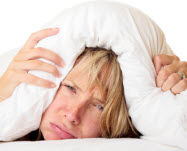Mental Health Diagnosis: A Model for Success
Diagnosing mental health conditions is more art than science – always was, always will be. The diagnosis of general medical conditions is not without an art component, but physical medicine has a major advantage over mental health medicine: the ability to objectify findings. Diagnostically speaking, there is an obvious, self-evident advantage to be able to confirm findings by way of blood work, scans and pictures (as in X-rays). In mental health, there is not one single blood test or reliable [...]









